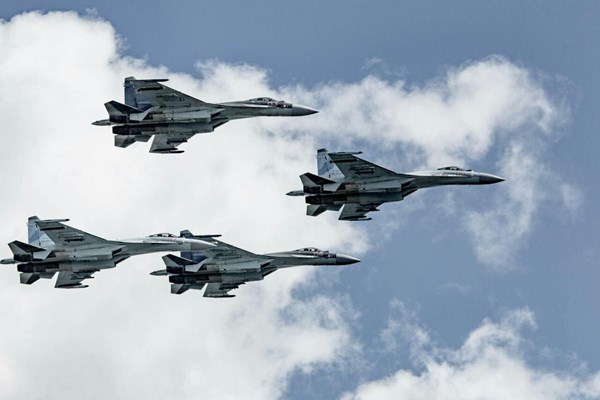Iran to buy Su-35 fighter jets from Russia
The Iranian authorities has announced that an agreement has been signed with Russia to buy Su-35 fighter jets. The contract was signed after the expiration of the UN arms embargo prohibiting Iran's purchase of conventional weapons, reported the Iranian state news agency IRNA.
In a message to the United Nations, Iran said Russia had shown its willingness to sell the aircraft and the Su-35 jets were "technically acceptable."
Iran has an outdated fleet of fighter jets, mostly consisting of Soviet MiG and Su aircraft, as well as a few Chinese and old American aircraft received by the country before the 1979 Islamic Revolution. The purchase of spare parts for them was also hampered by sanctions.
Last December, the Israeli TV channel i24news reported, citing intelligence sources tracking military deals between Moscow and Tehran, that Russia would soon supply Iran with a squadron of fighter jets. According to the channel, these, most likely, would be 24 Su-35 fighter jets, which were originally intended for Egypt. According to intelligence reports, Iranian pilots have already undergone training on these aircraft. In addition, Tehran was supposed to receive air defense systems from Moscow, the channel pointed out. In turn, Iran was supposed to send Russia another batch of 300 Shahed-136 kamikaze drones in addition to the 1700 drones already delivered.
In October 2020, the Iranian Foreign Ministry announced the expiration of restrictions on the arms trade established by the UN. Now Tehran can acquire weapons and specialized equipment without legal restrictions, "guided by its defense needs," Tehran said. Under the Joint Comprehensive Plan of Action (JCPOA), signed in 2015 by Iran, the United States, Russia, China, Germany, France and the United Kingdom, Tehran had to fulfill several steps to limit its nuclear program in exchange for the lifting of sanctions imposed by the United States and the European Union, including the step-by-step lifting of the arms embargo.
Iran began phasing out its commitments after Washington unilaterally withdrew from the JCPOA in May 2018 and began tightening sanctions on Tehran. Other parties to the agreement, including Germany, France, and Britain, supported the preservation of the agreement with Iran. The UN Security Council in August 2020 rejected the United States resolution to extend the arms embargo against Iran, after majority of Security Council members abstained from voting.
